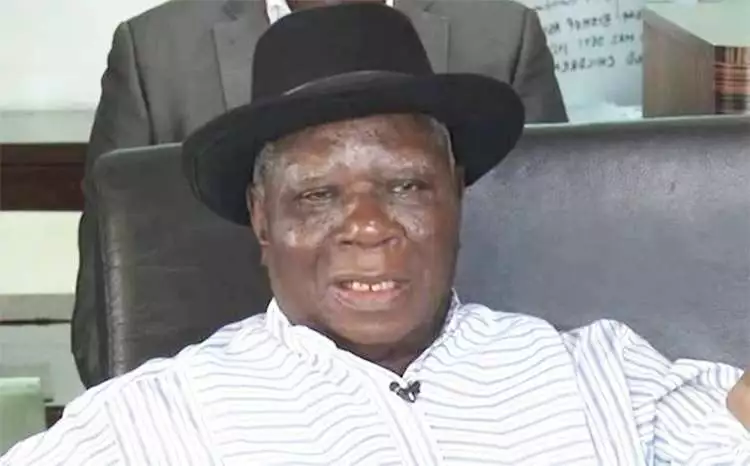By Uche Mbah
A Federal High Court sitting in Abuja, will deliver judgement February 21, 2022, in a suit seeking to prevent former Vice President, Atiku Abubakar, from contesting for Presidency in 2023.
This was disclosed
Monday by the presiding Judge, Justice Inyang Ekpo, in a suit challenging Atiku’s eligibility to contest the 2023 presidential elections.
Although the Peoples Democratic Party, PDP, zoned the Chairmanship of the party to the North, they left open the zoning of the Office of the President.
A group, under the eagis of the Incorporated Trustees of Egalitarian Mission for Africa, had approached the Court to interpret whether section 25 of the Constitution of the Federal Republic of Nigeria, 1999 (as amended), “is the sole authority that spells out ways by which a person can become a Nigerian citizen by birth”.
Their argument is that Atiku is not a Nigerian and, therefore, not eligible to contest.
The group asked the Court to declare whether by the provisions of section 131(a) of the Constitution of the Federal Republic of Nigeria, 1999 (as amended), only a Nigeria citizen by birth can contest for the office of the President of the Federal Republic of Nigeria.
“Whether by the combined interpretation of section 25(1) & (2) and 131(a) of the Constitution of the Federal Republic of Nigeria, 1999 (as amended), and giving the circumstances surrounding the birth of the 1st Defendant (Atiku), he can be cleared by the 2nd and 3rd Defendants to contest for the office of the President of the Federal Republic of Nigeria?.
The Plaintiff applied for a declaration that by the provisions of the Constitution, “only a Nigerian citizen by birth can contest for the office of the President of the Federal Republic of Nigeria.” and that he cannot be cleared by either PDP or the Independent National Electoral Commission, INEC, to vie for Presidency.
The group is a none governmental Organisation.
In a 12-paragraphed affidavit, the group noted that Atiku was born on December 25, 1946, and that he is from Jedda, Adamawa state.
“Jada used to be in Ganye Local Government Area in Adamawa. That Ganye is regarded as the mother of the whole Chamba tribe.
“That Ganye, however, was never part of Nigeria legally as at the date of birth of the 1st Defendant. That the area had been entrusted to Britain by a League of Nations mandate in 1919 and later as Trust Territory by the United Nations in 1946.
“That the defeat of Germany in World War 1, Cameroon became a League of Nations mandate territory and was split into French Cameroons and British Cameroons in 1919.
“That while France integrated the economy of their part of Cameroon with that of France, the British, administered theirs from neighboring Nigeria, making 1st Defendant’s Jada a British franchise.
“That a plebiscite was held in British Cameroons to determine whether the people preferred to stay in Cameroon or align with Nigeria.
“That while Northern Cameroon preferred a union with Nigeria, Southern Cameroon chose alignment with the mother country.
“That on June 1, 1961, Northern Cameroon became part of Nigeria, and on October 1, 1961, the Southern territory dissolved into Cameroon.
“That Ganye, which incorporates the 1st Defendant’s birthplace of Jada was the headquarters of British Cameroons, but it joined Nigeria following the plebiscite.
“That when the 1st Defendant was on November 25, 1946, born to a Fulani trader and farmer, Garba Abubakar, Jada village and other parts of Chamba land in the then Northern Cameroon, were still known as British Cameroon.
“That none of the 1st Defendant’s parents or grandparents was born in Nigeria. That the 1st Defendant’s father died a citizen of Northern Cameroon in 1957 prior the referendum of June 1, 1961, that made Northern Cameroon became part of Nigeria.
“That the 1st Defendant’s ancestral origin is deeply rooted in the then Northern Cameroon. That the 1st Defendant is not a Nigerian citizen by birth.
“That the 1st Defendant is not qualified to be elected into the office of the President of the Federal Republic of Nigeria”, the Plaintiff added.
The group joined PDP, INEC, Attorney-General of the Federation, and the Attorney-General of Adamawa State on the suit.
The case got an interesting twist when the Attorney General of the Federation, AGF, Abubakar Malami, claimed that Atiku is not constitutionally eligible to vie for Presidency.
According to him, Atiku violated the provisions of Sections 25(1) &(2) and 131(a) of the constitution, Section 118(1)(k) of the Electoral Act by putting himself forward as a presidential candidate.
“The first Defendant (Atiku) is not a fit and proper person to be a candidate for election to the office of president of the Federal Republic of Nigeria.
“The first Defendant was born on the 25th of November, 1946 at Jada, at the time in Northern Cameroon. By the plebiscite of 1961, the town of Jada was incorporated into Nigeria.
“The first defendant is a Nigerian by virtue of the 1961 plebiscite, but not a Nigerian by birth. The first defendant’s parents died before the 1961 plebiscite”, Malami argued in support of a suit.
Malami’s, lawyers were led by Oladipo Okpeseyi, SAN.
He argued that Atiku, contesting for Vice Presidency before now, violated Section 118(1)(k) of the Electoral Act.
“(The plebiscite) qualified all those born before the 1961 plebiscIte as citizens of Nigeria, but not Nigerian citizen by birth. Consequently, only citizens born after the 1961 plebiscite are citizens of Nigeria by birth”, Malami added.
According to him, Atiku cannot claim citizenship of Nigeria by birth.
“This is even more so where his parents do not belong to any tribe indigenous to Nigeria until their death. The facts of his (Atiku’s) birth on the Cameroonian territory to Cameroonian parents remain unchallenged.
“At best, the first defendant can only acquire Nigerian citizenship by the 1961 plebiscite. The citizenship qualifications under Section 26 and 27 of the 1999 Constitution of the Federal Republic of Nigeria (1999), by implication, has limited the first defendant’s privileges or rights and cannot be equal or proportional to the privileges of other citizens who acquire their citizenship status by birth.
“This would include the legal preclusion of the first defendant from contesting for the office of the President of Nigeria”.
He added that another way would have been if either his parents had become Nigerian citizen by virtue of Section 25(1) of the 1999 Constitution, which must be in compliance with Sections 26 and 27of the same constitution.
“With no concrete proof of compliance, we submit that the first defendant cannot contest election to the office of the Nigerian President”, Malami added.
However, Atiku, maintained that he is “a bonafide citizen of the Federal Republic of Nigeria”.
He told the court that he served as Vice President from 1999 to 2007, held many public/private offices in Nigeria, and served as Governor of Adamawa State and as a Comissioned Officer of the Nigeria Customs Service.
“I know as a fact that this suit as filed by the Trustees of the Plaintiff is aimed at maligning the person and integrity of the 1st Defendant”, Atiku’s lawyer, Chief Eyitayo Jegede, SAN, argued.
After hearing all arguments Justice Ekpo adjourned to February 21, 2022 a for ruling.





